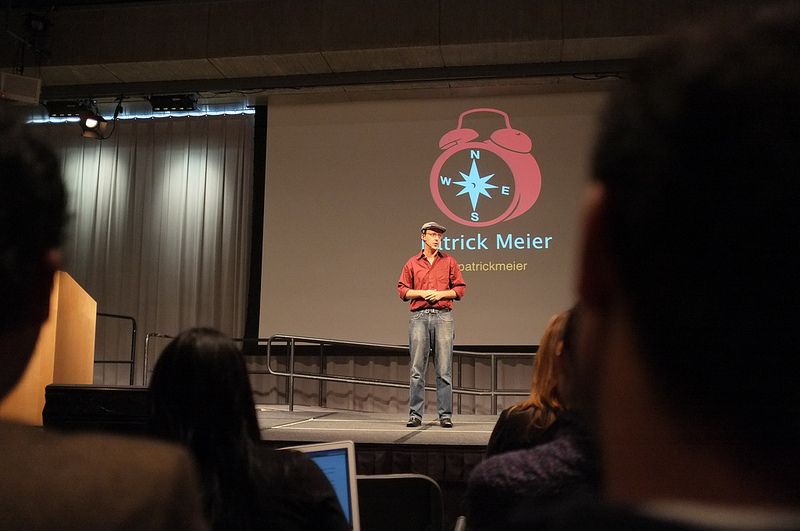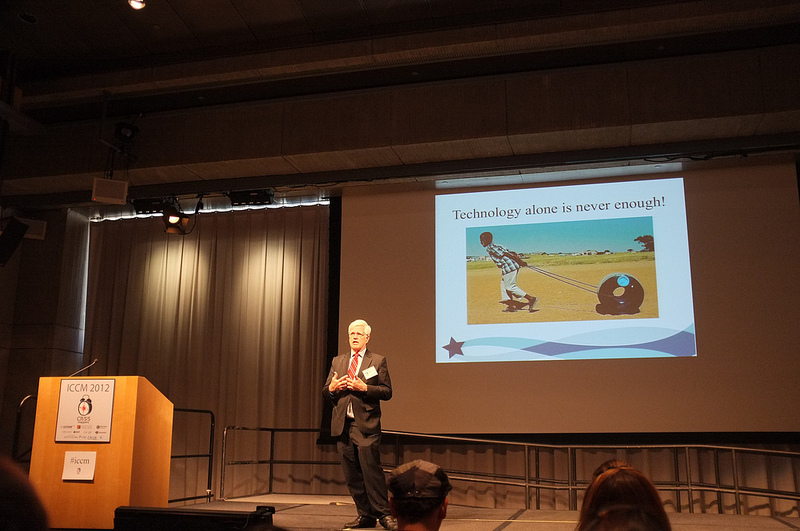OpenTok helps us bridge self-paced content and real-time video engagement. If you’re interested in exploring our platform, check out our upcoming course on mHealth: Mobile Phones for Public Health, organized in partnership with the mHealth Alliance. Class starts on Nov. 12!
Generally speaking, most online learning is divided into two camps: Self-paced content (Coursera, Moodle, etc.) or real-time video webinars (Adobe Connect, etc.). The problem is that our experience indicated that we needed both self-paced content to accommodate the mid-career professionals that comprise most of our students interested in technology, as well as real-time engagement to provide direct interaction with technologists and practitioners. Rather than compromise, we set out to build our own online learning platform.
When we set out to re-imagine online learning for our needs at TechChange, we realized that in order for our learning approach to work, we needed to create an environment conducive to collaboration and co-creation of learning. Our ability to beam in experts from all over the world for remote interviews is crucial to to making this type of learning possible. We use a video chat service called OpenTok to power these engagements.
OpenTok is a flexible video streaming service that allows us to integrate live video chat into our learning platform without having to worry about the actual video streaming itself. OpenTok provides a robust application programming interface (API) that allows a developer to integrate OpenTok services directly into your website or mobile application. They also offer pre-built solutions that you can simply embed into a website, but the brilliance of the OpenTok model is in their fully-featured API.
We tried other video platforms before finding OpenTok, but none of them offered the flexibility and feature richness that OpenTok offers. Using OpenTok we are able to allow remote presenters to simply log into our website and start publishing their audio-video feeds to our courses in only two clicks. This has greatly increased the ease of use of the platform and made it possible to convene important conversations between experts and course participants from countries around the world, including: Libya, Pakistan, Kazakstan, Kenya, Thailand, Egypt, and many others
Due to the bandwidth and other constraints we face bringing together this global audience (our courses generally include participants from 20+ countries), OpenTok’s robust API has been key to our success. With OpenTok speakers and participants can easily toggle video and audio streams to conserve bandwidth. We also convene participant panels where small groups of course participants can discuss pressing issues and share their personal experiences. We believe this video interaction goes a long way to creating virtual learning communities and adds greatly to course outcomes.
More recently, we used OpenTok to power our live stream of the International Conference of Crisis Mappers 2012. We received an excellent response to this offering and are looking forward to using OpenTok to allow other conferences and events to further engage with the global audiences that hunger for access to these important discussions. We believe it is especially important to provide access and inclusion to these communities that for any number of reasons are unable to be physically present for the increasing number of important discussions happening at ICT4D events and conferences in D.C. and around the world.
Finally, none of this would have been possible without OpenTok’s incredible customer support and technical assistance. I’ve spent countless hours on their IRC channel getting advice and support from members of their tech team. A special thanks goes out to @digitalsai, @meliho, and @jonmumm and others at OpenTok for all of their technical assistance and invaluable support as we’ve developed our OpenTok integration.


